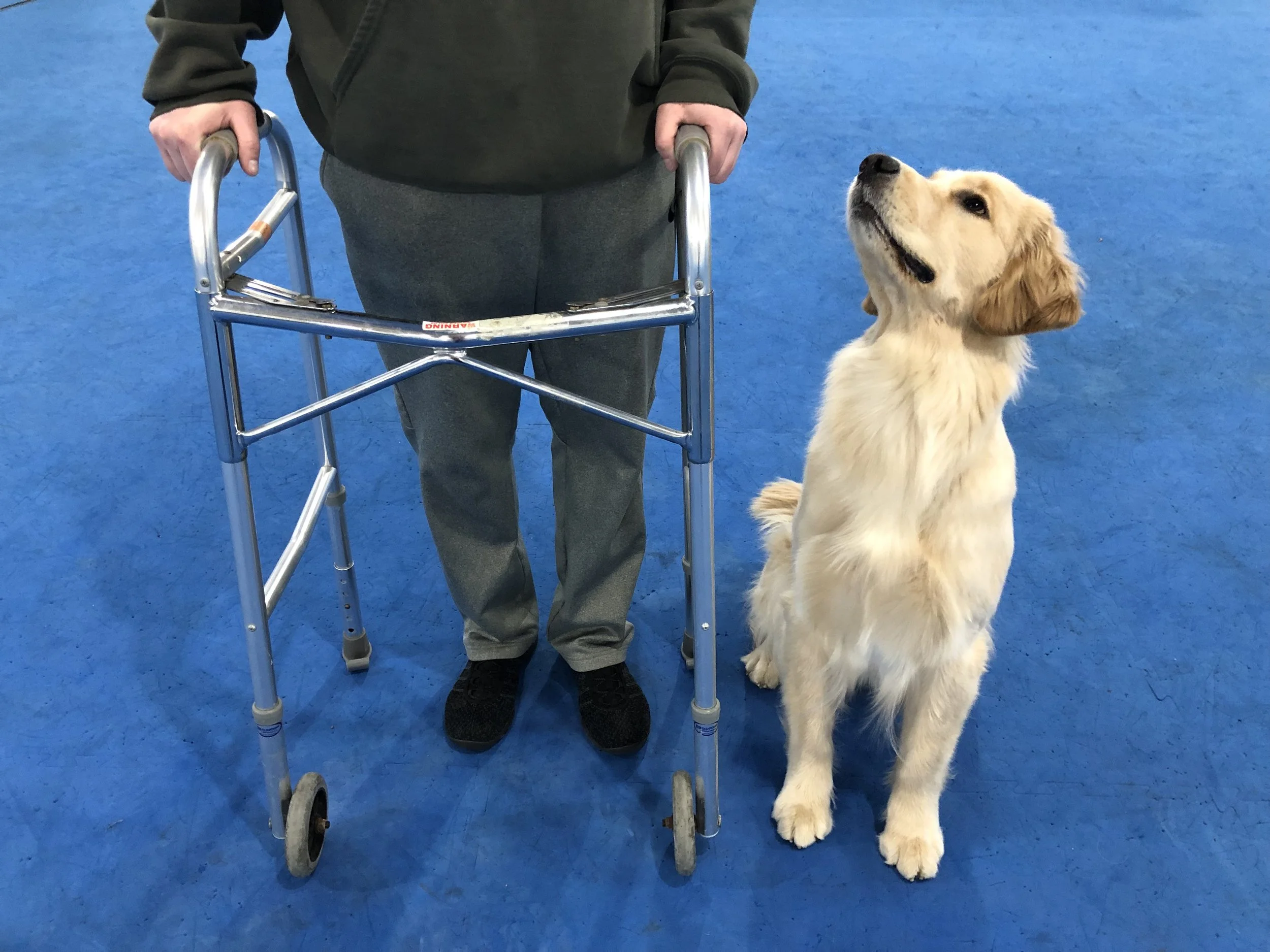Therapy Dog Training
4 one-hour class sessions PREREQUISITES: Dogs must be at least one year old. PREP Class and Family Dog Manners I. We recommend you also take Family Dog Manners II but it is not required. If you have not taken FDMI & II at TCCA, we need to assess your dog first for the equivalent skills before you register…please email. Go to list of all courses to learn more about prerequisite class(es)
You already probably agree that petting a sweet, calm doggie face is relaxing and emotionally supportive. Some dogs are such good emotional caregivers that we want to share them as therapy dogs. If you feel like this about your own dog, consider taking Therapy Dog Training class. In Therapy Dog Training you and your dog get to practice class activities that correlate to the evaluation criteria of Alliance of Therapy Dogs test-out. You get to practice each test section from the initial meeting to being handled by strangers to responding to people with wheelchairs, walkers, etc. Both handler skills and dog skills are covered. Each class is designed to help put you and your dog on the road to developing the skills needed to pass the Alliance of Therapy Dogs comprehensive evaluation. The first three classes cover skills. The fourth class will (usually) take place off the TCCA campus, in a facility more like those you and your dog would visit. During the fourth class, you will experience a mock evaluation with a certified Alliance of Therapy Dogs evaluator.
Special Notes: : To work as a therapy dog team, you need a dog who is calm around people and dogs, doesn’t jump up to greet people, and has a sweet soft disposition. Sometimes it takes a few Family Dog and Special Focus classes before you are ready for Therapy Dog Training. You need to have good focus, loose leash walking and polite greetings under good control first. (But keep working at it if this is your dream! It is truly a worthwhile goal!)
This class is best suited for: people who really want to volunteer and give back to their community, and dogs who are naturally of a sweet disposition, are well-mannered and well-behaved with good attention on the owner.
Min/Max Enrollment: 4/8
Bring the Following to Class (these follow the ATD requirements and differ slightly from other TCCA classes)
- 4 foot leash (note this is different than the usual 6 foot)
- Flat collar for ALL dogs (well-fitted martingales accepted)
- Harness is acceptable, but must still wear a collar also.
- Head halters also acceptable (still wears a collar also)
- Water
- Doggie Bags
- Towel for cleaning dog feet
You will learn:
- the rules for ATD evaluation and performing as an ATD therapy dog in facilities
- how your dog needs to interact with people safely (some with various challenges)
- how your dog needs to interact with the therapy group (both dogs and people visiting)
- to focus on your dog and assure dog is feeling secure/etc.
- to redirect people who wish to touch your dog inappropriately for him/her
- to direct people HOW to touch your own dog
- to move in a facility on a loose leash, making turns, among various distractions
- to appropriately correct your dog when they show inappropriate behavior
- to recognize signs of avoidance or stress in your own dog and in others
- to be able to interact with people and chat while still monitoring your dog closely
- to redirect your dog from canine-canine interactions and maintain a 2-foot dog radius
Your Dog will learn:
- to avoid canine-canine interactions while on therapy dog visits
- to move through a facility with focus on owner
- acceptable behavior whether held in arms or on the ground or furniture
- to accept petting, people leaning over him/her, odd movements, loud voices, etc.
- to walk to a beside or chairside for patient/client access and be calm
- to calm down quickly if initially excited
- to avoid barking in the facility
- to get on and off furniture on cue


